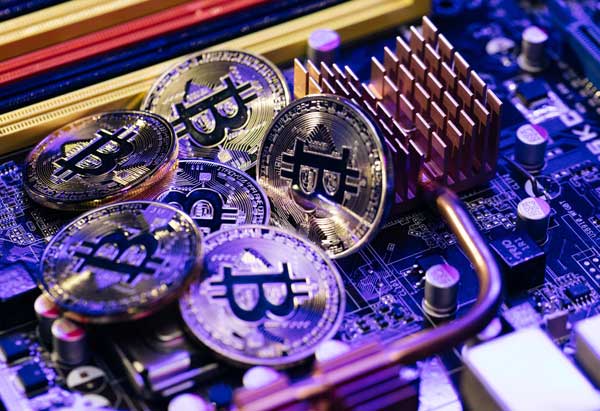One of the biggest lies banks tell us is that our money grows in our bank accounts. While money grows in number because of the interest, it doesn’t grow in value or in real terms. With inflation soaring through the roof and bank interest lagging way behind, keeping cash in the bank is actually burning a hole in your pocket. In this article, we will discuss six assets that will stop this wealth erosion and help you create intergenerational wealth.

One of the biggest reasons why money is valuable
Considered valuable is because it is used to store value for the future. However, governments today print more and more money to finance their deficits. Therefore, you never know when that piece of paper you call the dollar will become worthless. This is why financial gurus recommend investing in something valuable that is scarce and can’t easily be created. Precious metals such as gold, silver, and platinum will always rise in value when inflation rips through the ceiling. Before the 1950s, an ounce of gold could be bought for $400. In 2023, the same ounce is priced above $2,000. According to Prime XBT’s gold forecasts, this is supposed to go up to $10,000 by 2032. That is, in about 10 years, your gold investments will be five times what they are now. So, while cash keeps going down, gold keeps going up. Similarly, other precious metals are also better than holding cash in the bank.
Gold ETFs
Gold ETFs or exchange-traded funds are investment funds that trade on stock exchanges like ordinary shares. These funds hold physical gold as their underlying asset, and investors can buy and sell shares of the ETF on the stock market. The ETF’s share price moves in accordance with the underlying gold price, and investors can profit from gold price movements without physically holding the metal.
Investing in gold ETFs is a convenient and cost-effective way to gain exposure to the gold market, especially for individual investors who cannot afford to buy large amounts of physical gold. Gold ETFs provide investors with the flexibility to invest in gold without having to worry about storing, insuring, and securing the metal, which can be expensive and cumbersome.

Moreover, Gold ETFs offer several other advantages over physical gold investments. For example, gold ETFs are more liquid than physical gold, as they can be easily bought or sold on the stock market at any time during trading hours. In contrast, selling physical gold can take more time, and the investor may not get the market price if they need to sell it quickly.
Additionally, investing in gold ETFs allows investors to diversify their portfolios beyond just gold. Most gold ETFs hold a portfolio of different types of gold-related investments, including physical gold, gold futures contracts, and gold mining stocks. This diversification can help mitigate risks associated with investing in just one asset class.
Overall, gold ETFs offer a simple and convenient way for investors to gain exposure to the gold market without the hassles associated with owning physical gold. However, as with any investment, it’s essential to do your research and assess the risks before investing in a gold ETF.
Industrial Commodities
While scarcity is one reason why precious metals are so-called precious, these have natural utility value also and this makes them indispensable industrial commodities. For example, silver is used in the production of electronics, medical equipment, nuclear reactors, and whatnot. Similarly, other metals such as cobalt, nickel, and copper have high industrial demand due to their natural properties that can’t be easily replicated by alternative materials. To draw a much clearer picture, since 2020, the demand for cobalt has skyrocketed. The biggest reason is its crucial use in producing batteries for electric vehicles. Commensurately, its prices have risen from US Dollars 20,000 per ton in 2012 to US Dollars 40,000 in 2022. That’s a 100% increase in just 10 years. Therefore, having exposure to such raw materials can significantly boost your portfolio in high demand phases. However, not everyone can invest huge sums of money in acquiring raw materials nor can we physically store them or find the right buyers. Therefore, investing in stocks of mining companies such as Rio Tinto, mining-focused mutual funds, or even derivatives such as futures and options are all great ways of gaining such exposure.
Safe Haven Currencies
In the current world of fiat currencies, where no currency is backed by gold, geopolitical stability is a crucial factor while investing your money. This is why the rich always keep their money in Swiss banks. Switzerland, having one of the world’s strongest economic systems, offers a much more stable geopolitical environment. Therefore, the Swiss franc is considered a safe haven asset in times of turmoil and instability. We have seen this time and again. For example, during the Eurozone debt crisis in 2009 and in the global financial crisis in 2008, sizable funds flew from these countries to Switzerland to prevent wealth erosion due to currency depreciation Investors can consider investing in Swiss francs directly or through exchange-traded funds (ETFs) that track the currency’s performance. Additionally, other currencies such as the US dollar, Japanese yen, and euro are also considered safe-haven currencies due to their stability and liquidity.

Real Estate
Real estate is another asset that can protect your wealth from inflation. While the value of money decreases, the value of property generally increases over time, making it an excellent investment opportunity. However, it is important to note that not all real estate investments are created equal. Investing in rental properties can provide a steady stream of passive income, while flipping properties can lead to quick profits. On the other hand, investing in commercial real estate or real estate investment trusts (REITs) can offer diversification and exposure to a wider range of properties and tenants.
Cryptocurrencies
While cryptocurrencies are still considered a relatively new asset class, they have gained popularity in recent years due to their potential as a hedge against inflation. Bitcoin, the first and most well-known cryptocurrency, has seen significant growth over the past decade, with its value skyrocketing from a few cents to over $60,000 per coin in 2021. Other cryptocurrencies such as Ethereum, Binance Coin, and Dogecoin have also seen impressive gains. However, it is important to note that cryptocurrencies are highly volatile and not suitable for all investors.

Conclusion
In conclusion, investing in assets that protect your wealth from inflation is crucial in today’s economy. Precious metals, industrial commodities, safe-haven currencies, real estate, and cryptocurrencies are all potential options for investors looking to hedge against inflation and preserve their wealth. However, it is important to do your own research and seek professional advice before making any investment decisions.
